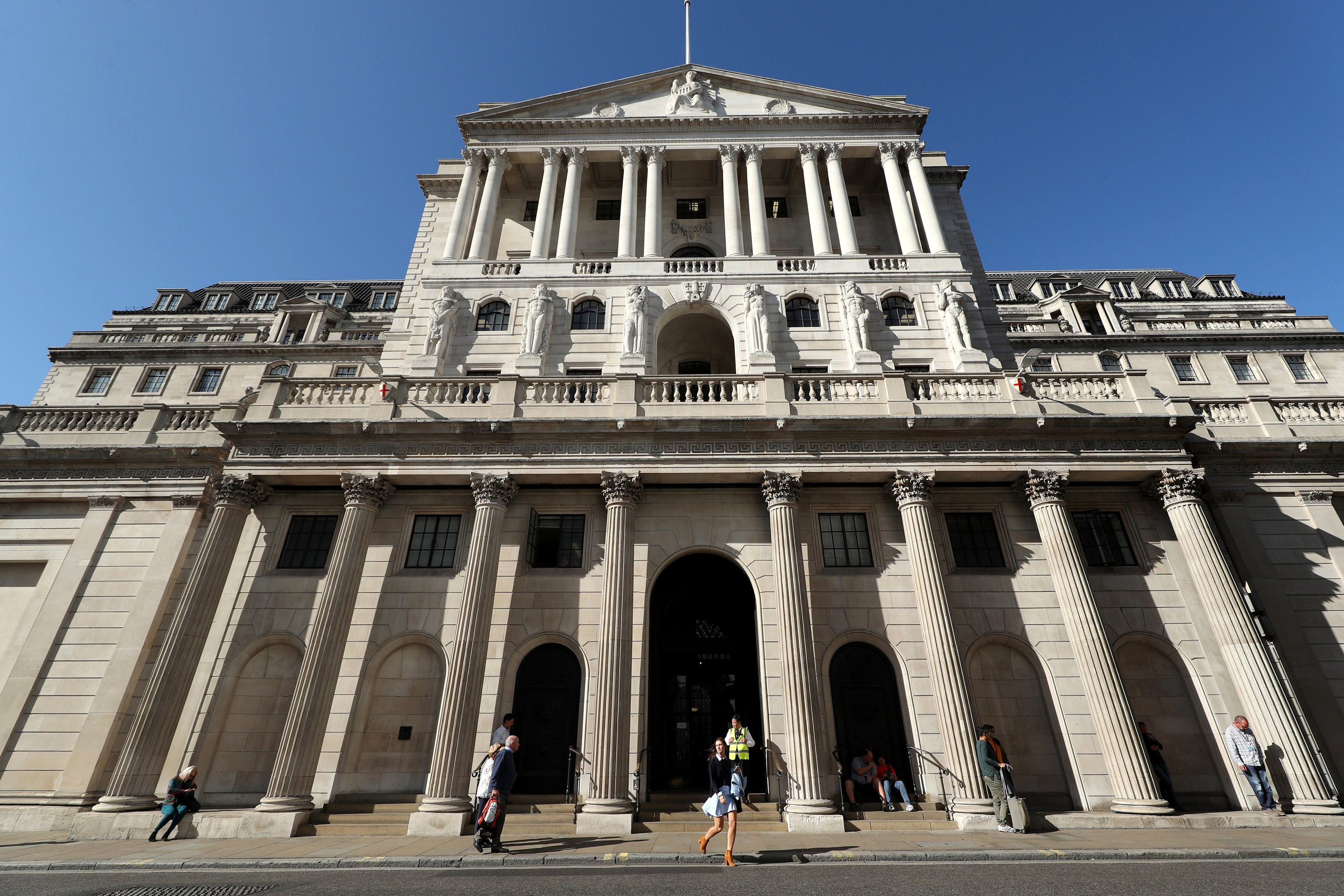Bank of England hikes interest rates to 1.25%
Three of the Bank’s nine-person committee wanted to go even further

Your support helps us to tell the story
From reproductive rights to climate change to Big Tech, The Independent is on the ground when the story is developing. Whether it's investigating the financials of Elon Musk's pro-Trump PAC or producing our latest documentary, 'The A Word', which shines a light on the American women fighting for reproductive rights, we know how important it is to parse out the facts from the messaging.
At such a critical moment in US history, we need reporters on the ground. Your donation allows us to keep sending journalists to speak to both sides of the story.
The Independent is trusted by Americans across the entire political spectrum. And unlike many other quality news outlets, we choose not to lock Americans out of our reporting and analysis with paywalls. We believe quality journalism should be available to everyone, paid for by those who can afford it.
Your support makes all the difference.The Bank of England has raised its interest base rate to the highest point since the start of 2009 as it hiked its inflation predictions for the autumn.
The Bank’s experts set the rate at 1.25%, a rise from 1% previously, and the fifth increase in a row as it tries to tame runaway inflation.
It also warned that prices for households across the country might increase even further than previously thought.
Three of the nine-person Monetary Policy Committee (MPC) voted for an even bigger hike, arguing that rates should rise as high as 1.5%.
“In view of continuing signs of robust cost and price pressures, including the current tightness of the labour market, and the risk that those pressures become more persistent, the committee voted to increase Bank rate by 0.25 percentage points,” it said in a notice.
For the MPC, which decides on rates, a key concern is inflation.
The committee is tasked with keeping inflation constant at around 2%, a target it is currently well clear of.
The cost of living has been soaring for months, with consumer prices index (CPI) inflation hitting a 40-year high of 9% in April when the energy price cap was hiked.
But things are set to get even worse later this year.
Experts currently expect that regulator Ofgem could put up energy prices even further, from £1,971 per year to around £2,800.
This, alongside other pressures in the economy, could lead to CPI topping 11% in October, the Bank said.
Just a month ago it had predicted inflation to peak at above 10%.
“The economy has recently been subject to a succession of very large shocks,” Bank Governor Andrew Bailey wrote in a letter to Chancellor Rishi Sunak setting out why inflation was so much higher than the 2% target.
“These shocks have pushed global energy and tradable goods prices to elevated levels.
“Those price increases have raised UK inflation and, since the United Kingdom is a net importer of these items, will necessarily weigh on most UK households’ real incomes and many UK companies’ real profits.”
The Chancellor has announced multi-billion pound help for struggling households, much of which is set to come in when energy bills rise again in October.
But it might prove somewhat of a double-edged sword, the Bank said, adding another 0.1 percentage points to CPI in the first year.
In its reports on Thursday the Bank also downgraded its forecast for gross domestic product (GDP) for the second quarter of the year.
GDP is now expected to drop by 0.3% across the quarter, weaker than anticipated just over a month ago.
The Bank’s base rate has been low since being cut rapidly during the financial crisis. It has risen recently in response to what is happening in the economy.
It is the only time since records began in 1694 that the base rate has been set at 1.25%. In February 2009, the rate was lowered from 1.5% to 1%, skipping the step in between.
Labour shadow chief secretary to the Treasury, Pat McFadden, said: “Many families will be worrying about the impact this will have on their household bills.
“We need a plan for a stronger, more stable economy, that can weather the short-term issues and fix the foundations for the long term.”
British Chambers of Commerce head of research, David Bharier, added: “While expected, the decision to raise the interest rate will add further concern to businesses amid a weakened economic outlook, soaring cost pressures, and labour shortages.
“The increase signals the Bank’s intention to tackle inflation but businesses have been raising the alarm about spiralling prices since the start of 2021 and a higher interest rate is unlikely to address many of the global causes of this.”